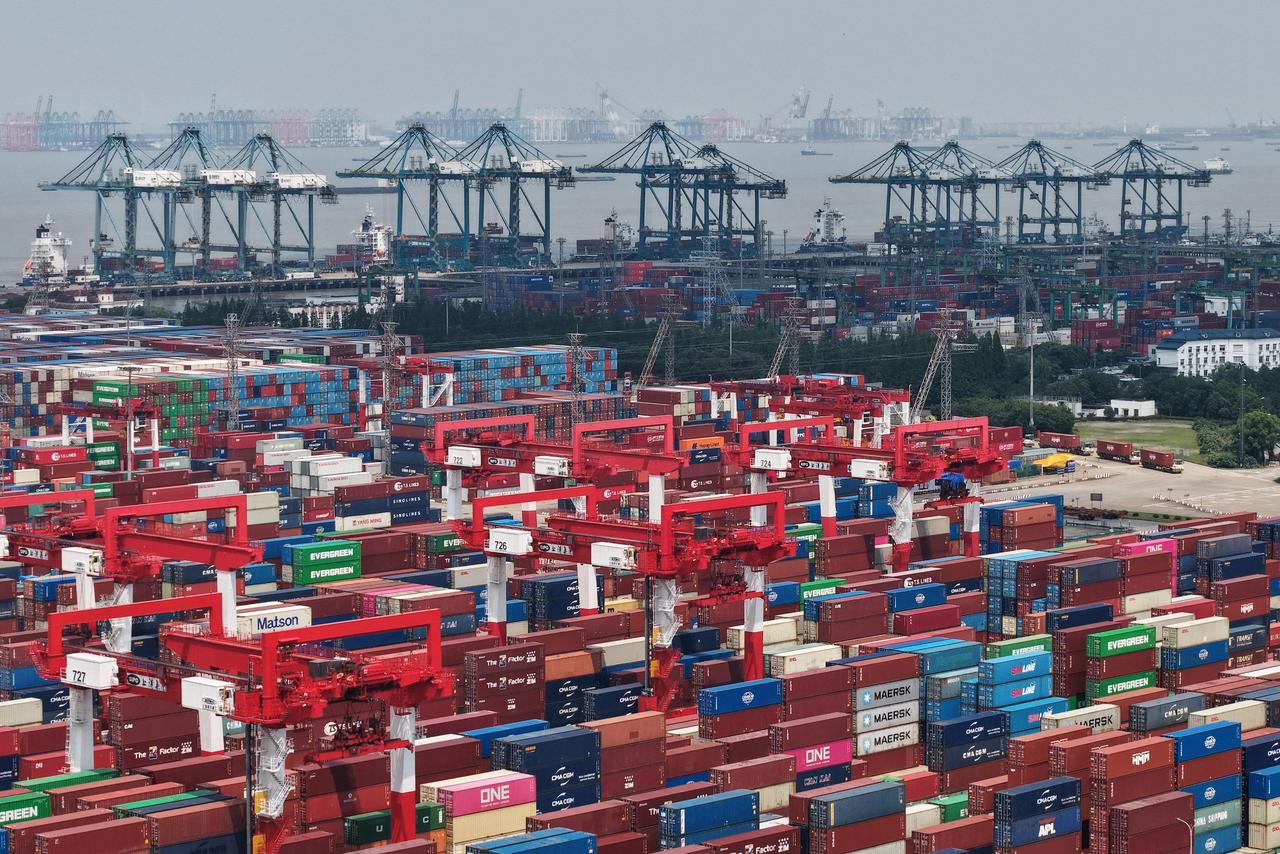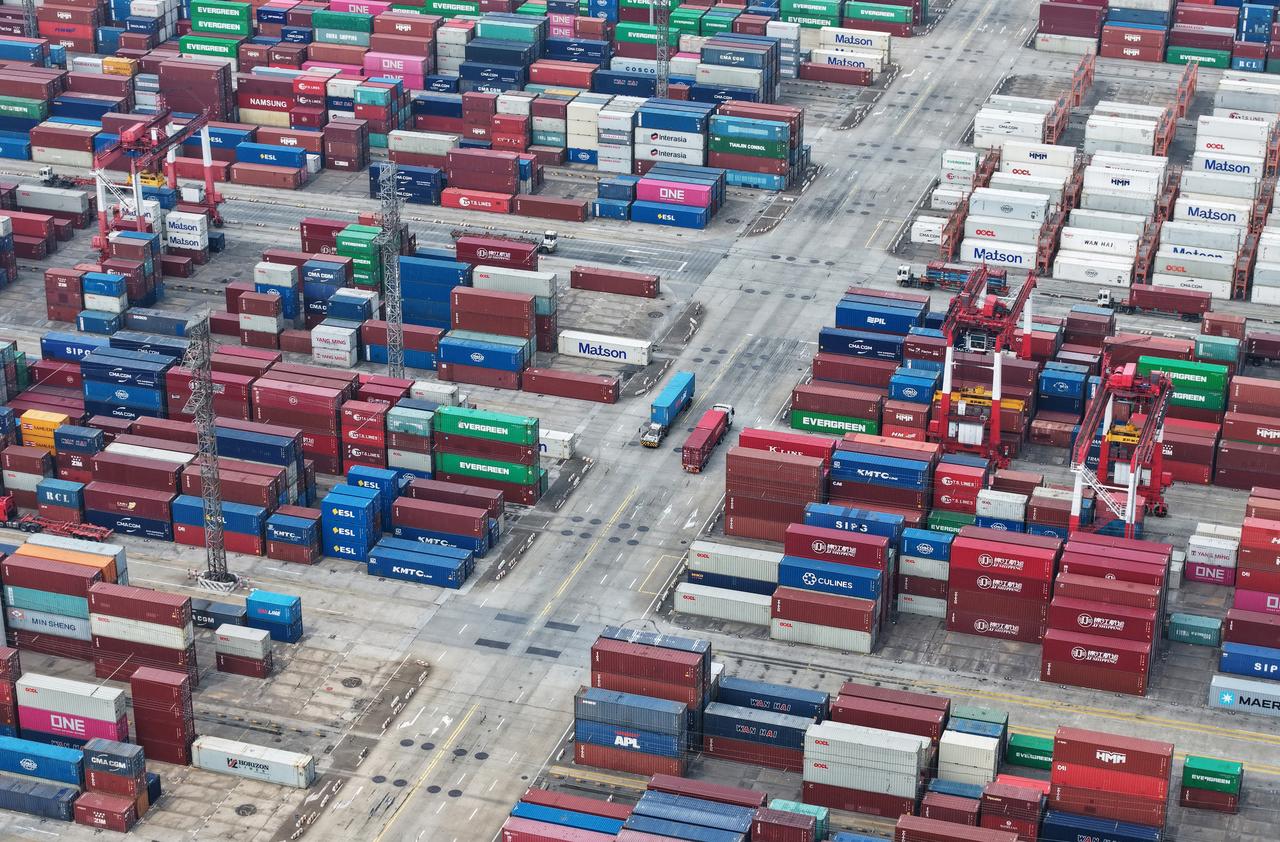
Chinese exports to the United States have suffered a sharp decline amid growing uncertainty over tariffs and deepening concerns about the country’s broader economic outlook.
Official data released on Monday showed that exports to the U.S. dropped by 34.5% year-on-year in May, marking a steep acceleration from the 21% decline recorded in April.
This sharp downturn came after a fresh round of reciprocal tariffs between Washington and Beijing, after U.S. President Donald Trump raised import duties on Chinese goods to as high as 145%.
In response, China imposed tariffs of up to 125% on American imports—measures that remained in effect until a temporary truce was reached during trade talks in Geneva earlier in May.
Despite the severe drop in shipments to the U.S., China’s overall exports grew by 4.8% year-on-year in May, reaching $316.1 billion. However, this growth rate marked a slowdown from April’s 8.1% and fell short of market expectations, with Bloomberg analysts forecasting a 6.0% rise.
Imports, meanwhile, contracted by 3.4% annually to $212.9 billion, resulting in a trade surplus of $103.2 billion. Analysts pointed to persistent domestic weakness, as the world’s second-largest economy struggles to revive consumption following the COVID-19 pandemic.
According to the National Bureau of Statistics (NBS), the consumer price index dropped by 0.1% year-on-year in May, marking the fourth consecutive month of deflation. Additionally, factory gate prices continued to slide, with the producer price index falling 3.3% in May, a steeper decline than April’s 2.7%.

Amid U.S.-China tensions, exports to Southeast Asia have become increasingly important for Beijing. However, May data revealed signs of weakening momentum.
Exports to the Association of Southeast Asian Nations (ASEAN) rose by 14.8% compared to the previous year, slowing from 20.8% in April. Shipments to countries such as Malaysia, Thailand, Singapore, and Indonesia declined slightly from the previous month.
One area of resilience has been China’s exports of rare earth minerals—key inputs in technologies such as electric vehicle batteries and electronics—which rose to 5,865 tons in May from 4,785 tons in April.

Trade delegations from China and the United States are set to meet in London on Monday for a new round of negotiations.
The U.S. side will be represented by Treasury Secretary Scott Bessent, Commerce Secretary Howard Lutnick, and Trade Representative Jamieson Greer. China will be represented by Vice Premier He Lifeng, responsible for economic affairs.
The talks follow an earlier round in Geneva held from May 10–11, where the two sides agreed to temporarily reduce tariffs for 90 days. As part of that deal, the U.S. lowered tariffs from 145% to 30% on Chinese goods, while China reduced duties on U.S. imports from 125% to 10%.
Despite that initial breakthrough, tensions reignited after President Trump accused China of violating key parts of the Geneva agreement.
He expressed frustration over China's continued restrictions on rare earth exports and pledged to raise the issue in a phone call with Chinese President Xi Jinping, which took place on June 5.
Following the call, both sides signaled a willingness to continue working toward implementing the Geneva accord.
Beyond tariffs, the dispute has increasingly extended into technology and education.
The U.S. has imposed controls on the export of artificial intelligence chips and design software to China. It has also suspended visas for Chinese graduate students connected to the Communist Party or sensitive research areas.
Beijing, in turn, has resisted U.S. calls to lift rare earth export limits, further deepening the rift between the two countries.